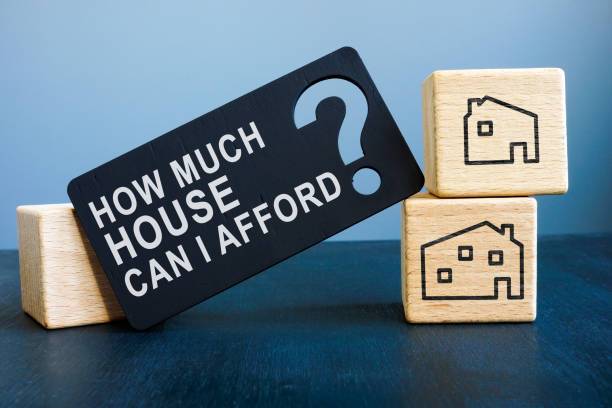Difference between Pre-qualification and pre-approval
Difference between Pre-qualification and pre-approval The terms pre-qualified and pre-approved are often used interchangeably but mean essentially the same thing. There is a subtle but significant distinction between the two concepts, even though they share some common meaning. Getting pre-qualified for a mortgage is typically a lot simpler and quicker procedure. However, getting pre-approved will give you a far more definite and trustworthy estimate. It will determine what you can afford to spend on a house because it is a more comprehensive procedure. Thus, it usually takes longer than being pre-qualified. However, neither of these things is a guarantee that you will be approved for a mortgage. What Does it Mean to be Pre-Qualified? You can acquire a ballpark figure for how much house you can buy after getting pre-qualified mortgage. To be clear, this is in no way a guarantee that you will be approved for a mortgage. Since becoming pre-qualified simply provides you with a ballpark figure, you won’t have to prove much of anything. This is done until you actually apply for a loan. Do You Have to Get Pre-Qualified to Get a Guarantee? Pre-qualification for a mortgage does not assure you of getting a loan. Even though getting pre-qualified is the first step in getting a mortgage, it’s not the only one. Lender due diligence requires verification of the applicant’s and borrower’s financials, credit history, down payment, and the property’s condition. At the mortgage approval stage, your application could be denied if any of these things alter or cause an issue. You may receive a ballpark figure for how much house you can afford by being pre-qualified for a mortgage. However, if you’re truly committed to purchasing a home, you should go the next step and get pre-approved for a mortgage. Pre-qualification: Is it possible to be turned down later? Pre-qualification for a mortgage doesn’t guarantee you’ll get the loan. It only offers you a ballpark figure for how much house you can afford. Things like your income, credit history, and down payment won’t be scrutinised to any significant extent by the lending institution. It’s possible that your mortgage application could be denied if your financial condition changes between the time you are pre-qualified and the time you make an offer on a home. For instance, if you were to suddenly lose your job, accumulate considerable debt, or see a significant drop in your credit score. Your maximum budget for a home purchase may be affected by all of these factors Can a Pre-Qualification Help Me Submit a House Offer? In theory, you could make an offer on a house with just a pre-qualification, but that’s not a good idea. Because getting pre-qualified does not require verification of your income, financial situation, or credit score, the amount you are pre-qualified for is merely a ballpark figure. The validity of your pre-qualification is likely to expire if your financial status has changed since you got pre-qualified, or if there are problems validating the information you submitted. Making an offer on a house when you are only pre-qualified is a big gamble. Even if you’re pre-qualified, it’s best to wait until you know for sure that you can afford the home before making an offer. The only exception is if you found your dream home that day and had to make an offer right away. In order to make a more confident offer, it is recommended that you get pre-approved for a mortgage before beginning your search for a new home. Sellers will want to know that you aren’t just looking to buy a home for the sake of it. Thus, relying on a mortgage pre-qualification alone could end up hurting your prospects of securing the loan and buying the house. Pre-approval for a mortgage is a plus in the eyes of the seller since it demonstrates that you’ve done your homework and are serious about making an offer. What Proof of Income and Other Information Does the Lender Need? To get pre-qualified for a mortgage, the lender may ask for several papers, but often you won’t need to submit many. No paperwork is required if you use an online pre-qualification calculator. Simply plug in your annual income and any other pertinent financial data, and the calculator will spit out a ballpark figure representing how much you may reasonably spend on a property. Similarly, you often won’t need to present any documentation if you’re performing a pre-qualification over the phone. Your income and current debt load are two examples of the kind of information that may be requested. You will probably just need to show your most recent pay stub and a letter from your employer. A credit check is not part of the mortgage pre-qualification process, so you won’t need to submit your credit report. Will Pre-qualification negatively affect my credit score? A mortgage pre-qualification inquiry will not lower your credit score. A mortgage pre-qualification is not the same as a pre-approval because it does not require a credit check. Therefore, it will not affect your credit rating. Related posts 21 January 2023 Denied mortgage renewal: What happens next? Denied Mortgage Renewal:What happens next? If you want to keep paying down your mortgage after the current… 19 January 2023 Canada’s Bank Regulator Wants Tighter Real Estate Risk Rules Canada’s Bank Regulator Wants Tighter Real Estate Risk Rules More stringent rules on mortgage borrowing… 16 January 2023 Reasons a robust labour market could affect your mortgage interest rate Reasons a robust labour market could affect your mortgage interest rate Over the past year, Canada’s… 13 January 2023 Is it necessary to pay Toronto’s new vacant home tax? Is it necessary to pay Toronto’s new vacant home tax? The new Vacant Home Tax in the City of Toronto… 13 January 2023 Difference between Pre-qualification and pre-approval Difference between Pre-qualification and pre-approval The terms pre-qualified and pre-approved are often… 12 January 2023 Toronto Residents Are Leaving At Record Rates, Immigration Overtakes Growth Toronto Residents Are Leaving At Record Rates, Immigration Overtakes
Difference between Pre-qualification and pre-approval Read More »



